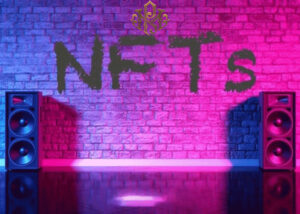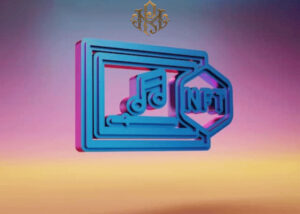
Close



What is NFT role in Music industry? What is music royalty tokenizing? In the last decade, non-fungible tokens (NFTs) have emerged as a new tool in the digital world. This technology has gained fame not only in the art industry, but also in the field of music, and by promoting property rights and creating new opportunities, it has brought a revolution in this industry.
One important aspect of tokens in the music industry is the tokenization of music ownership rights. By using blockchain technology, ownership rights and use of musical works are provided to artists in a transparent and verifiable manner, and this allows them to directly benefit from the income from their effects. This process is known as tokenizing music rights.

Increasing artist income: By tokenizing ownership rights, music artists can directly benefit from the sale of NFT tokens and increase their income.
Transparency and reduction of intermediaries: The use of blockchain leads to transparency in financial transactions and music ownership rights, and minimizes the need for financial intermediaries.
Direct communication with fans: This technology allows artists to communicate directly with their fans and engage them as an active component in supporting their works.
Legal Issues: Issues related to property rights and copyright laws may be challenged.
NFT market stability: The volatility of the NFT market and its ups and downs can be challenging for music artists.
Education and awareness: Artists should be familiar with the technical tools needed to use tokens.
The Future of NFT Tokens in the Music Industry The future of NFT tokens in the music industry will play an important role in promoting the ownership rights and financial processes of artists. Blockchain technology and NFT tokens give musicians a direct and calculable opportunity to enjoy the income from their works and can lead to the creation of a fairer ecosystem in the music industry.
Famous NFT music projects As one of the examples of music NFT projects, the “Kings of Leon” project is worth mentioning. The band released their first NFT album titled “When You See Yourself” and sold many tokens from the album. Each token belonged to a piece of music or additional content, and this action not only increased the band’s income, but also created a direct connection between fans and artists.
As a new tool in the music industry, non-fungible tokens (NFT) have been able to improve the ownership rights of artists and make the financial process more transparent. By creating a direct connection between artists and fans, this technology benefits both parties. As NFT continues to be developed and used in the music industry, new possibilities for artists and creating direct connections with the fan community will emerge, which can lead the music industry towards a better and fairer economic model.
Challenges and increased transparency in the music industry Although NFT technology allows artists to connect more closely with fans and benefit from their financial rights, it also brings challenges. These challenges include the following:

As NFTs enter the music industry, there is a need to create bills and legal settings to reach a clear standard for how these tokens can represent ownership of music.
Security-related issues, such as cyber-attacks on NFT systems and data theft, can be challenging. Establishing specific security standards can improve this.
Several criticisms have been made on the high energy consumption of NFTs production and its negative effects on the environment. Efforts to use energy-efficient technologies or develop environmental standards can manage this challenge.
The future of the music industry is changing drastically with the introduction of NFT into its architecture. Although this technology allows artists to become financially independent, there are also challenges and uncertainties. With the development of technology and improved user experience, there is a possibility that this technology will be more accepted in the music industry.
Developing common standards and solving legal and security challenges can increase the efficiency of this technology. Also, the ability to connect directly between artists and fans will make for a better cultural experience.
The use of non-fungible tokens in the music industry improves the financial returns of artists and creates a closer connection between artists and fans. However, the need to develop standards and solve security and legal challenges enters the fundamental points in this field. The future of NFT use in the music industry is predictable due to the development of technology and the improvement of the user experience of artists and fans.